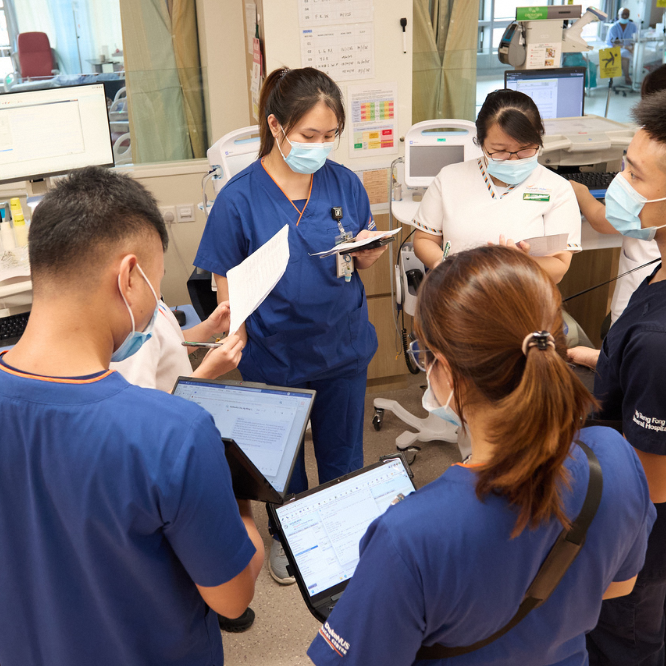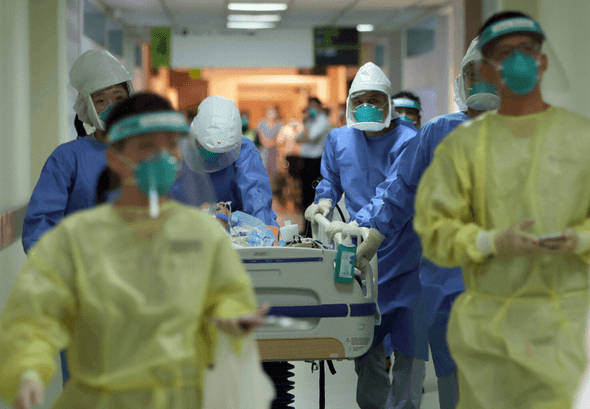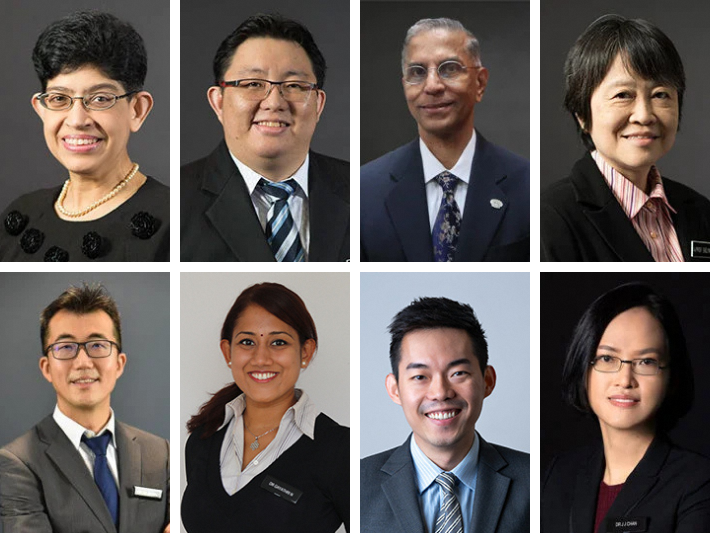Singapore General Hospital will NEVER ask you to transfer money over a call. If in doubt, call the 24/7 ScamShield helpline at 1799, or visit the ScamShield website at www.scamshield.gov.sg.
We’d love to hear from you! Rate the SGH website and share your feedback so we can enhance your online experience and serve you better. Click here to rate us
Emergency Care at SGH
We provide urgent care for life-threatening conditions and serious injuries

The Emergency Department in SGH is one of the busiest in Singapore. We understand that when emergencies strike, every second counts. Our priority is ensuring that patients in critical need receive the prompt care that they deserve.
Before visiting our emergency department, we kindly ask that you consider the urgency of your situation. For non-urgent medical needs, we encourage you to seek assistance from other healthcare providers within our network, ensuring that our emergency team can focus on those who need immediate and critical care.
Children Below 12 Years Old
In SGH, we do not have the facilities to treat young patients. Our paediatricians are stationed at KKH. Usually before sending young patients over, we will stabilize their condition first.
You do not need to come to the Emergency Department if your condition is mild. Please visit your nearest GP or consider alternative care options.
Mild Conditions:
- Sprains
- Nose bleeds
- Mild fever
- Coughing, runny nose
- Mild vomitting
- Diarrhea
Getting Here
The Emergency Services Department is located within the SGH Emergency / NNI building.
Address:
Level 3, Emergency Department
SGH Emergency / NNI Building
1 Hospital Boulevard, Singapore 168581
By Car/Taxi
Direct Emergency Service access via level 3 entrance to drop off patients (RECOMMENDED)
- Enter via College Road and turn into Hospital Crescent
- Use the SGH Emergency/NNI building up ramp to level 3
- Drop-off at Emergency Department entrance
- Parking if needed is located in the basement, entry via Hospital Boulevard
Indirect Emergency Service access via level 1 entrance
- Enter via Kampong Bahru Road or Jalan Bukit Merah and turn into Hospital Boulevard
- Follow the signs to enter the SGH Emergency/NNI building
- Drop-off passengers on level 1 entrance or proceed to basement carpark
- Follow the signs to Lobby D, and take the lift to Emergency Department on level 3
By Shuttle Bus
- Take the Blue SGH Campus Shuttle from Outram Park MRT Exit 6 or Exit 7. Alight at the SGH Emergency / NNI Building.
- From the shuttle bus drop-off station at the SGH Emergency / NNI building Level 1, proceed to lift "Lobby D". Take the lift to Level 3 for Emergency Services.
Getting to SGH Emergency
Find out how to get to the SGH Emergency Department by car, taxi or bus
Amenities & Directory
Find food options, convenience store and navigate the building with ease.
Your Journey at SGH Emergency Department
What to expect when you visit SGH Emergency, from arrival to treatment.

Overseas Emergency Evacuation
SGH is primed to manage emergency evacuations from overseas cases. If you have a loved one who requires to be transferred to Singapore for urgent medical care, find out more about the important information we require and the procedure.

Our Emergency Medicine Team
Our team of clinicians, registered nurses, and other specially trained staff are available around-the-clock to treat anyone seeking emergency medical care.
Stay Healthy With
Outram Road, Singapore 169608
© 2025 SingHealth Group. All Rights Reserved.




















